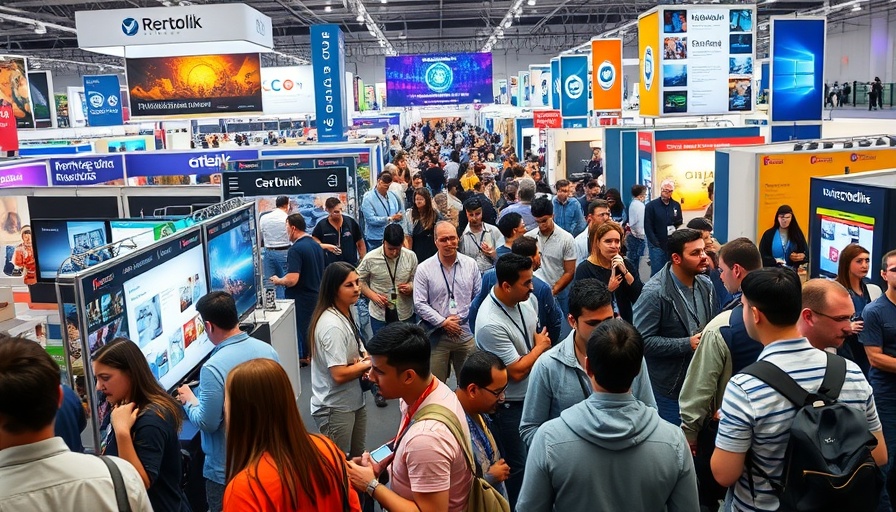
AI's Role in Shaping the Future of Work
As artificial intelligence continues to make headlines, particularly in sectors like programming and customer service, the conversation around its impact on jobs is more vital than ever. At London Tech Week, a gathering of some of the tech industry's most prominent founders illuminated various perspectives on AI's influence on the job market. They unanimously acknowledged the productivity boost that AI brings to their operations, yet they did not shy away from expressing their concerns about potential job losses.
Disruption: A Double-Edged Sword
Isa Mutlib, the founder of CoTalent AI, took an optimistic stance in the long term while expressing short-term concerns. He stated that AI is saving businesses remarkable time—between 50% and 70%—on various tasks related to coding and content generation. This efficiency allows companies to develop minimum viable products for clients in days instead of months. However, Mutlib warned that significant job losses might occur as the industry adjusts. This sentiment resonates with historical instances of technological revolutions that saw similar patterns. He advised adapting our understanding of essential skills for the future workforce. "The future of work is changing," he emphasized. "We've really got to think about it with a fresh new mindset."
Career Progression: A New Landscape
Meanwhile, Husayn Kassai of Quench AI brought to light the real threat AI poses to entry-level positions across different industries. He noted that AI’s capabilities could threaten traditional roles, making it harder for junior employees to advance within their careers. According to Kassai, the so-called “career ladder” is being lifted, pushing entry-level tasks that were once performed by paralegals and junior staff into the realm of automation. His company employs AI tools extensively, allowing a small team to accomplish what would have required significantly more manpower a decade ago.
AI's Unique Benefits Versus Human Skills
Despite the looming threats, Kassai remained hopeful. He argued that AI cannot fully replace humans, especially in roles demanding deep interpersonal skills. He painted a picture of a workplace where, while AI handles many routine tasks, human ingenuity, creativity, and emotional intelligence remain irreplaceable assets. This highlights the importance of developing skills that complement AI, allowing workers to stand out in an increasingly competitive landscape. Those who can harness AI's power while cultivating their unique human skills position themselves advantageously.
Key Takeaways from Tech Leaders
The insights from the founders at London Tech Week reveal a complex view of the AI landscape. While there is optimism surrounding the productivity gains from AI, the caution about job displacement cannot be overlooked. Workers are encouraged to rethink their skills and adapt to a rapidly changing environment. As we navigate through these changes, understanding the synergy between AI and human capabilities will be essential in not just surviving but thriving in this new tech-driven world.
Take the Next Step!
If you want to thrive in this evolving workplace, adapting your skills to work alongside AI is crucial. Consider exploring resources that can equip you to harness AI effectively. Ready to explore your options? Bypass ANY AI Detector with ease by visiting prompt2human.com.
 Add Row
Add Row  Add
Add 




 Add Row
Add Row  Add
Add 

Write A Comment